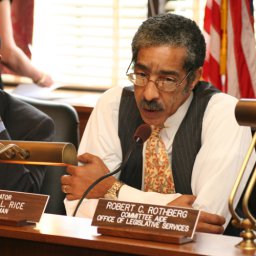Bipartisan Measure Aims to Combat Spate of Suicides Among War Veterans; Also Will Introduce Measure Calling on Congress to Close Federal “Treatment Gap”
TRENTON — Senate Majority Leader Barbara Buono said she would become a sponsor of bipartisan legislation released by a Senate committee today that would provide an income tax credit to veterans who require psychological counseling and treatment upon returning home from war.
The Senator also said she will introduce a separate measure calling on Congress to pass a federal bill to close a glaring hole in its veteran-counseling program named after a young Middlesex County veteran who committed suicide after returning home from his second tour of duty in Iraq.
Buono said both bills would attack the problem of suicide by returning Iraq and Afghanistan veterans who are suffering from Post Traumatic Stress Disorder (PTSD).
“The immense stress felt by many of our returning war heroes is real, and can be just as deadly as combat itself,” said Buono (D-Middlesex). “But when it comes to seeking the psychological help that can literally mean life or death, bureaucratic hurdles and increasing expenses often mean many go untreated. Unless we make it easier for veterans to get this help, more and more veterans will view suicide as the only means of shedding the mental scars of war.”
Under the first measure (S-1026), returning veterans would be eligible for a direct state income tax credit up to $10,000 of unreimbursed psychiatric treatment — counseling that is not covered by insurance. The bill, released today by the Senate Military and Veterans Affairs Committee, is also sponsored by Sen. Christopher Connors (R-Ocean). It now heads to the Senate Budget and Appropriations Committee for further considerations.
“Veterans and their families should not have to worry that the expense of counseling will keep them and their loved ones from getting the treatment they need,” said Buono. “A direct tax credit can provide the financial incentive these veterans need to not only enter treatment, but get better.”
The other Buono measure would call upon Congress to pass the “Sergeant Coleman S. Bean National Guard and Reserves Mental Health Act,” named in honor of the East Brunswick native and US Army veteran who committed suicide in 2008, at the age of 25 after returning from his second tour of duty in Iraq.
Sergeant Bean was a member of the Individual Ready Reserve, capable of being activated whenever the Army deemed it necessary. Even though he was not on active duty, his designation in the IRR created a gap that left him ineligible for the mental health services offered by the Pentagon and the VA. The act would fill that gap by directing the Secretary of Defense to ensure that members of the Individual Ready Reserve, as well as other service members whose duties could take them to a wartime theater at a moment’s notice, receive a telephone call from properly trained personnel to determine their emotional, psychological, medical, and career needs and concerns at least once every 90 days.
According to his family, Sgt. Bean suffered from acute post-traumatic stress disorder. He took his own life in Sept. 2008.
The federal measure passed the House of Representatives in May, where it was sponsored by Congressman Rush Holt. It is being championed in the Senate by Senator Frank Lautenberg, however the bill has yet to be taken up.
“It is inexplicable that servicemen and women can have access to care when they are on the battlefield and after they are released from duty, but not when they fall into the limbo that trapped Sgt. Bean,” said Buono. “Every soldier, regardless of their status, deserves equal access to mental health treatment. Absent this bill becoming law, Sgt. Bean’s tragic suicide will become more and more common, and more and more families will continue to ask the simple and heartbreaking question of, ‘Why?'”
Buono said she will introduce the resolution when the Senate reconvenes on Aug 23.


